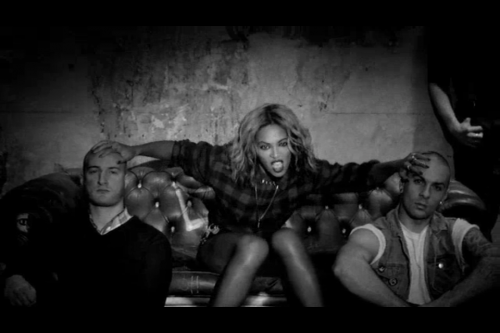Beyoncé has not only long been a role model for young girls as far as body image, she has also been a shining example of how far women can, and should, reach for their careers. Her incredible vocal talent no doubt helped her to achieve her current goddess-like success, but to disregard the strength of her female spirit would be ignoring a large part of what makes Beyoncé, well…Beyoncé.
Weeks after the release of her self-titled “secret album,” a feminist essay of hers was published in “The Shriver Report: A Woman’s Nation Pushes Back from the Brink.” Her essay “Gender Equality is a Myth!” discusses, however briefly, the reality of income inequality between the sexes and the attitudes both young girls and boys are raised with.
“We have to teach our boys the rules of equality and respect, so that as they grow up, gender equality becomes a natural way of life,” she wrote. “And we have to teach our girls that they can reach as high as humanly possible.”
Unfortunately, her addition to The Shriver Report is brief and left a woman like myself wanting more. Consciously or not, I have looked up to Beyoncé in some way for as long as I can remember. She essentially represents what most women strive for: she looks like a real woman; she is kind, confident, and beautiful, and she is successful. However, females need not look far for Beyoncé’s other feminist influences and feel proud that she is on our side.

Formerly, she has released tracks like “Run the World (Girls),” “Diva,” and even “Independent Woman” with Destiny’s Child. On her newest album, “Pretty Hurts” and “***Flawless” have been resonating strongly with female audiences. The more somber track, “Pretty Hurts,” vocalizes the pressure and struggle of young women trying to fit into a society that puts a strong emphasis on perfection in physical appearance. “***Flawless” is a fierce girl-power track that features Nigerian feminist writer Chimamanda Ngozi Adichie mid-song. The song uses excerpts from her talk at “We Should All Be Feminists” in London.
“We raise girls to see each other as competitors, not for jobs or for accomplishments, which I think can be a good thing, but for the attention of men,” said Adichie. “We teach girls that they cannot be sexual beings in the way that boys are.”
Anyone who has listened to Beyoncé’s new album and seen the accompanying videos knows that women can and should embrace their sexual side. Her videos for “Drunk in Love” and “Partition” tear down the boundaries of sexual expression that have been set up for women. The lyrics to “Partition,” and to the bubblier track “Blow,” would make anyone blush, and for good reason. It is about time women are allowed to sexually express themselves in the same way that men do; I dare you to use a misogynistic slur against Beyoncé for doing so.
Part of Beyoncé’s appeal as somewhat of a modern feminist is her celebration of her marriage and new last name. As a woman who plans to marry and take her future husband’s last name, it is refreshing to see a symbol for the female cause embracing that tradition. She is proud to be “Mrs. Carter” in the same way that I will be proud to be “Mrs. DiCaprio” someday. She shows us that women can embrace their feminism and stand up for the female cause while still preserving harmless customs that bond them with their male counterparts.
Although a big part of feminine confidence is physical appearance, it is refreshing to have a powerful woman represent and speak out about feminist ideas. It is one thing to look the part of a real woman, but a completely different thing to understand and be able to articulate the struggle for gender equality. Beyoncé’s voice can reach a much wider audience than the average orator or activist; thankfully, she is using that voice to make a difference for women.







